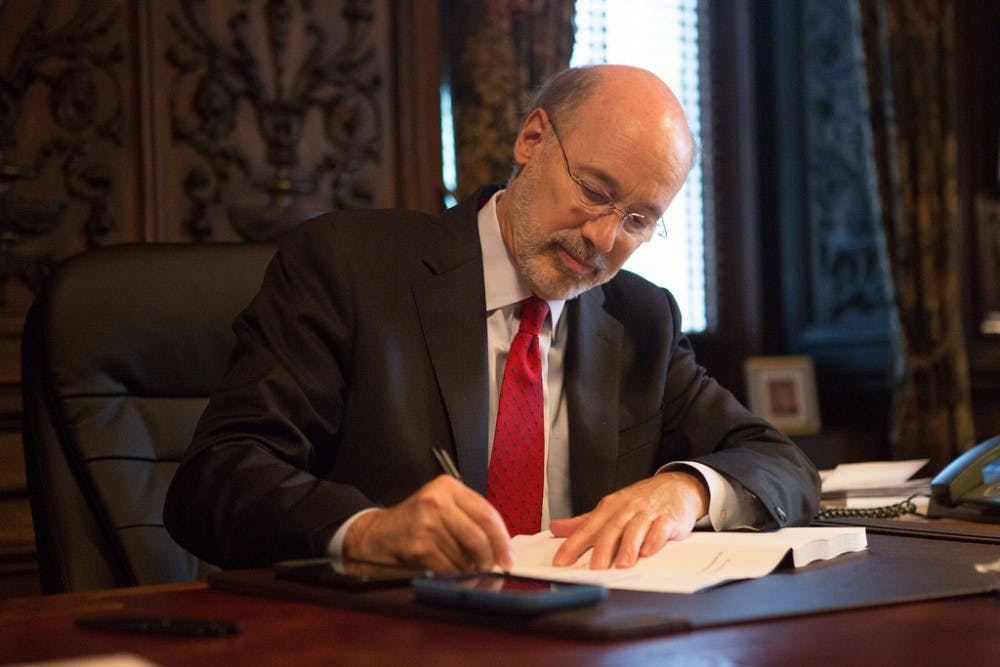Penn’s battle to secure funding from the Pennsylvania state budget for the upcoming fiscal year has not ended yet.
The final proposal for the $32 billion budget was passed by state legislators at the end of June. It restored funding of $30.1 million to Penn Vet, which Democratic Gov. Tom Wolf had proposed eliminating in his budget address in February.
But a month on, legislators have yet to agree on a plan for how to fund this proposal. The legislature reconvened in Harrisburg over the weekend of July 29 to discuss the matter, but have yet to announce a resolution.
Until the budget is balanced — which means the total revenue would be equal to the total expenditure — Penn and three other “state-related” universities will not receive funding. These universities, which are referred to as “non-preferreds,” include Penn State University and Temple University, as well as the University of Pittsburgh.
While Pennsylvania’s constitution requires that the state adopt a complete budget by June 30, the last day of the fiscal year, budget impasses can delay the process for months. In the 2015-2016 fiscal year, Pennsylvania passed a complete budget nine months after its due date in June 2015, making it the longest budget delay in modern Pennsylvania history.
State Sen. Jay Costa and State Rep. Frank Dermody released a joint statement, calling it “disturbing” that there is no fiscal revenue plan for the upcoming year by late July. It also noted that state-related universities “are in danger of not receiving any state appropriations this year” if the budget remains in a deadlock.
“This bizarre situation is unconscionable,” the statement read. “We have an incomplete budget and Pennsylvania families are wondering what happens next, especially those families preparing to send their children to college in the next few weeks.”
The loss in annual funding would negatively impact the Vet School’s animal hospitals, agricultural research and teaching.
“It needs to happen soon,” said Bill Patton, spokesman for the House Democrats. “If it does not get done soon, I fully expect that the universities and the families of thousands of students who attend them will make themselves known, and let us know that we need to get it done.”
Jonathan Madara, eighth-year veterinary medicine biomedical and graduate student, said the potential reduction in the Vet School infrastructure could have “severe negative impacts” on people across Pennsylvania, since agriculture makes up for a sizable portion of the state’s economy.
“From what I understand the potential $30.1 million loss of funding for the veterinary school would be devastating to the teaching and clinical operations of the veterinary school,” Madara said.
“In addition to drastic reductions in the operation of the small animal Ryan Hospital in Philadelphia, the large animal hospital (New Bolton Center) in Kennett Square would also be forced to scale back clinical and teaching operations dramatically. These hospitals provide the hands-on clinical education that veterinary students need, as well as the clinical care that clients from around the country travel to utilize.”
University spokesperson Stephen MacCarthy declined to comment.









